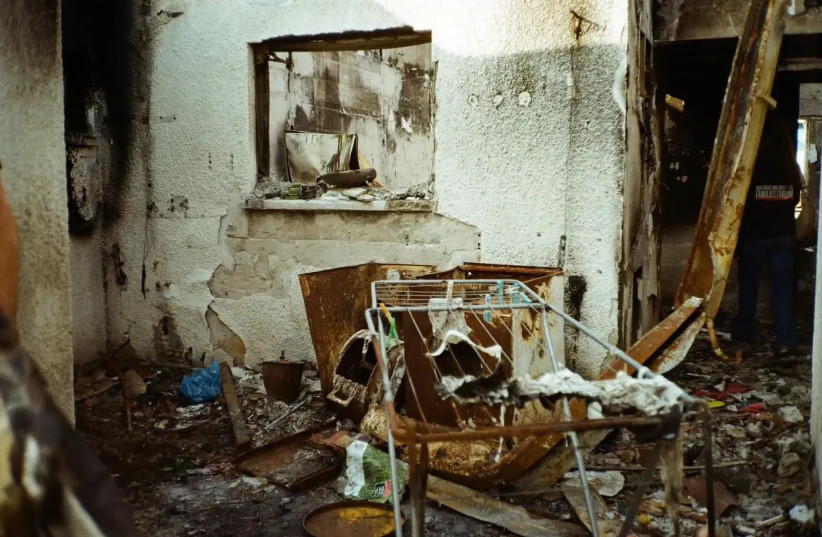High Court keeps comptroller Oct. 7 probe frozen, which IDF and AG had opposed
The High Court of Justice on Wednesday maintained its freeze of the State Comptroller’s probe of the IDF’s October 7 failures until at least July 28, with parts frozen until October 31, and possibly longer.
An initial freeze order was issued by the High Court on June 16.
Both the IDF and Attorney-General Gali Baharav-Miara had opposed the comptroller’s probe, alternately because it would distract from the still ongoing war or because various issues the comptroller wanted to probe should be, in their view, investigated by a state commission of inquiry.
Baharav-Miara went so far as to say that the comptroller’s desire to probe major national security strategy issues goes beyond his authority under the law, which should be focused on improving the efficiency of government operations, not larger strategy issues.
Underlying the IDF and Baharav-Miara’s objections is a fear that State Comptroller Matanyahu Englman will try to serve the interests of Prime Minister Benjamin Netanyahu, whereas a state inquiry would approach the October 7 issues at stake from a more objective perspective.

Despite maintaining the freeze, Justices Noam Sohlberg, David Mintz, and Yael Wilner suggested that the IDF and Baharav-Miara reach a deal with Englman by July 28 to allow him to probe a narrow set of issues.
Further, the court suggested that the IDF and Baharav-Miara reach a broader deal with Englman on the remaining issues by October 31, which may be enough time that much of the war may be over, or may be enough time for a state inquiry to have started.
It was unclear which way the court would rule if the parties do not reach a deal.
The dispute pits Englman against IDF Chief of Staff Lt.-Gen. Herzi Halevi, with Baharav-Miara already having taken Halevi’s side.
Dating back to January, Halevi rejected the comptroller’s request to turn over a variety of internal military documents as part of a probe into the state’s failures, which allowed Hamas’s October 7 invasion to occur.
Distracting the IDF mid-war would be dangerous
Halevi has repeatedly noted that the IDF was undertaking its own probes and that the IDF has been supportive of a post-war state commission of inquiry, but that distracting the IDF mid-war with handling comptroller inquiries would be dangerous.
In fact, the IDF’s internal probes of October 7 started to be publicized last week regarding the invasion and battle of Beeri and are set to be publicized on a rolling basis from mid-July through August.
The IDF chief had said there was “no precedent for undertaking the kind of probe which you specified” mid-war, such that all parallel prior comptroller probes only took place post-war.
In addition, Halevi had stated such a probe would “distract the attention of commanders from the war; and would harm the ability and quality of the IDF’s ongoing operational probe; and it would prevent the learning of lessons which is necessary in order to achieve the goals of the war.”
As such, Halevi had recommended that Englman delay his probe until a later date.
The High Court sided with Halevi and with the petitioners, the Movement for Quality Government in Israel and Israel’s Defensive Shield Forum, who jumped to the IDF’s assistance, formally asking the High Court to block Englman.
After reviewing the submissions of the respondents and confidential opinions submitted by security officials, Justice Gila Canfy-Steinitz in June determined that “until the hearing of the petition, in view of the complex security reality, the planned scope of investigation that will deal with…the combat support system and core operational issues, and in view of the preparation required to give answers at this time – while giving significant weight to the confidential opinions of the security officials that were submitted for consideration – I am ordering the suspension of the investigation procedures as they relate to the IDF and the Shin Bet.” The Shin Bet piece of the dispute has been less public since it is unclear that whatever the comptroller might find about the Shin Bet would be something that could be made public at any later date.
Englman had ignored all objections, saying that there were ways to keep aspects of the probe anonymous and to handle it sensitively so as not to disrupt IDF officials from prosecuting the war.
Englman has said that the war is so long and that aspects of it have slowed down enough that he could not wait any longer to probe the October 7 failures, having waited months.
However, he has been attacked as initiating the probe in order to dump the blame for October 7 on the defense establishment, while serving as a veneer for Netanyahu to hide behind, so as to avoid a state commission of inquiry which might hit the prime minister harder.
Although Englman has issued some hard-hitting reports and is well-respected internationally on climate change and cyber issues, his defenses of Netanyahu on legal corruption issues early in his term and the fact that he was not a former judge have left allegations hovering over him that he is a Netanyahu lieutenant.
The Movement for the Quality of Government in Israel has also submitted a separate petition to compel the government to initiate a full state inquiry.





Comments are closed.